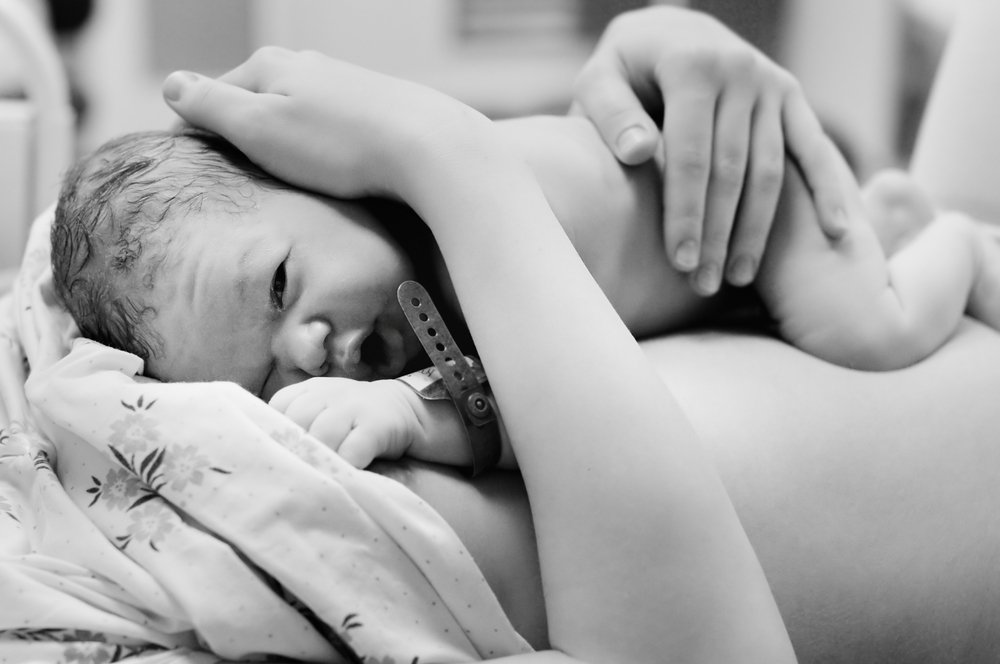How Midwives Handle Complications during a Natural Birth
Skilled midwives play a crucial role in assisting with home births.
On the rare occasion that a complication arises, midwives are trained and ready to manage the situation.
Today, we’ll delve into the important topic of midwifery and birthing complications. You’ll learn:
How midwives work to help prevent complications
What midwives do if there’s a complication
Strategies to help you deal with complications
Midwife Expertise in the Face of Complications
Midwives are deeply committed to supporting holistic prenatal care and natural childbirth. They are highly trained professionals armed with specialized knowledge and experience related to reproductive and sexual health, pregnancy, labor, delivery, neonatal care, and postpartum care. We recommend working with a certified and licensed midwife.
Evidence shows that planned home births (by low-risk women) that are attended by a well-qualified midwife have good outcomes — often better than those of hospital births. However, should an unexpected situation occur, midwives are backed by credentials and expertise that make them well-qualified to jump into action.
Related: How to Find a Midwife for a Home Birth
Midwife-Managed Birth Complications
Childbirth is a complex natural process. It simply isn’t possible to always anticipate or mitigate what’s going to happen. Potential hurdles can surface with home births.
Midwives Can Manage These Complications
Midwives, though, are typically capable of addressing complications with natural delivery such as:
Pain
Blood loss, hemorrhaging, and lacerations
Umbilical cord wrapped around the baby’s neck
Prolonged labor
Variations in fetal positioning
Retained placenta
Shoulder dystocia
Complications that Require Advanced Care
For a variety of reasons, midwives can’t treat all complications.
Sometimes, the issue is that the interventions a midwife can use aren’t right for the situation at hand. Other times, complications don’t respond to or get resolved by the efforts of the midwife.
It’s also important to note that there are limitations on what midwives are allowed to do. It varies from place to place and depends on a midwife’s qualifications — but generally speaking, midwives can’t:
Administer anesthesia
Perform surgery
Use vacuum devices or forceps to assist the birth
Handling Complications in Natural Childbirth
Midwives have layers of safety measures in place so that they can respond quickly, appropriately, and effectively in case of complications.
Tools & Techniques for Addressing Complications with Natural Delivery
The midwife’s kit is full of supplies and strategies to help them manage complications. This can include:
Suture kits to stitch up any tearing
Resuscitation bag/mask to assist a baby's breathing
Fetal monitoring devices for keeping a close eye on the baby's well-being
Intravenous (IV) equipment to ensure hydration and medication
Support aids to facilitate optimal birthing positions
Emergency medications to swiftly intervene for specific complications
Additionally, midwives are stocked with gloves, stethoscopes, sterile instruments, blood pressure cuffs, thermometers, urine and blood testing kits, oxygen, cleaning and disinfecting agents, etc.
With all this at their disposal, midwives can track progress and adjust actions based on how mom and baby are doing.
Collaboration for the Best Care Possible
If treatment for a complication is beyond the midwife’s scope, she will activate an emergency back-up plan so mom and baby get the care they need.
This may include transferring mom and/or baby to the hospital during or after childbirth.
When going to a hospital is required, the midwife handles all the logistics to facilitate a safe and seamless transition. The hospital and staff will know in advance that you’re on your way. Though most transfers to a hospital aren’t emergencies, once the decision to go is made — things happen quickly and you’ll be at the hospital in no time.
Coping with Complications
Complications don’t just take a toll on a person physically. Encountering complications can be stressful, too.
One of the core tenets of home and natural birth is empowerment. With that sentiment in mind, here are some things you could try to help yourself reduce the overwhelm.
Have a coping plan in place before you need it (if you ever need it).
Establish a strong support network with your midwife, friends, and family.
Open lines of communication so your midwife and family can better help you.
Queue up things that bring you comfort, like music, aromatherapy, or special mementos.
Give yourself time and space to process your emotions.
Lean into creative outlets to express your feelings.
Find ways to channel positivity, like a gratitude journal or mindfulness practice.
Prioritize self-care — like getting good nutrition and sleep — and healing.
Working through your thoughts and feelings may help improve your outlook and outcomes.
Hearth & Home Midwifery, the Expert Care You Need
Midwives have the skill and knowledge to handle complications. They come to your home prepared with the necessary tools and techniques.
However, there are complications that midwives aren’t able to address directly. In these situations, midwives deftly manage the transfer of care to the appropriate healthcare professional.
You’re in good hands when you work with a properly trained, certified, and experienced midwife. They help ensure you have the best possible home birth experience.
If you’re interested in learning more about any part of the home birth process, please contact us to schedule a consultation. We look forward to hearing from you!




